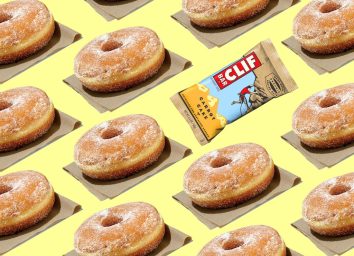18 ‘Healthy’ Swaps That Aren’t Actually Better For You
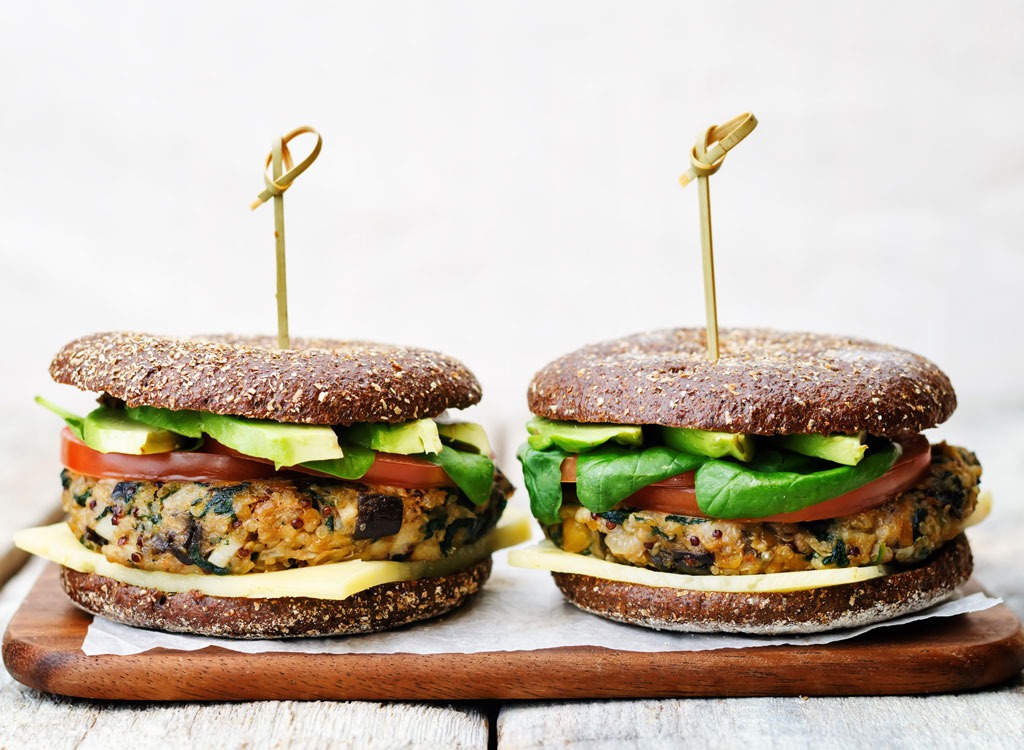
While a dieter’s new eating plan often begins by kicking these favorites to the curb, sometimes the foods that replace them won’t actually help them reach their body goals. In fact, many notoriously “healthy” swaps may even cause more harm than good.
You see, one of the troubles with these “healthy” substitutions is that they can often leave your taste buds and belly craving more, derailing even the most committed dieter! Even worse, when dieters perceive a food as more nutritious—due to buzzwords like “healthy” or “organic”—they tend to misjudge how many calories are actually in them. As a result? They let their guard down, which can ultimately lead to overeating or feeling entitled to indulge. In fact, a Cornell University study found that when you tell a diner their main dish is “healthy”, people end up choosing beverages, side dishes, and desserts that contain up to 131 percent more calories than they would have chosen if the main dish was recommended without any health halos.
To help you stay on track toward your better body goals, we’ve looked into some of the most common diet swaps and pinpointed the ones likely to do more harm than good. Kiss those bland trade-outs goodbye and enjoy adding some of your favorite, flavorful foods back to your plate! You should, however, continue to give up these 40 Habits That Make You Sick and Fat.
Granola for Cereal
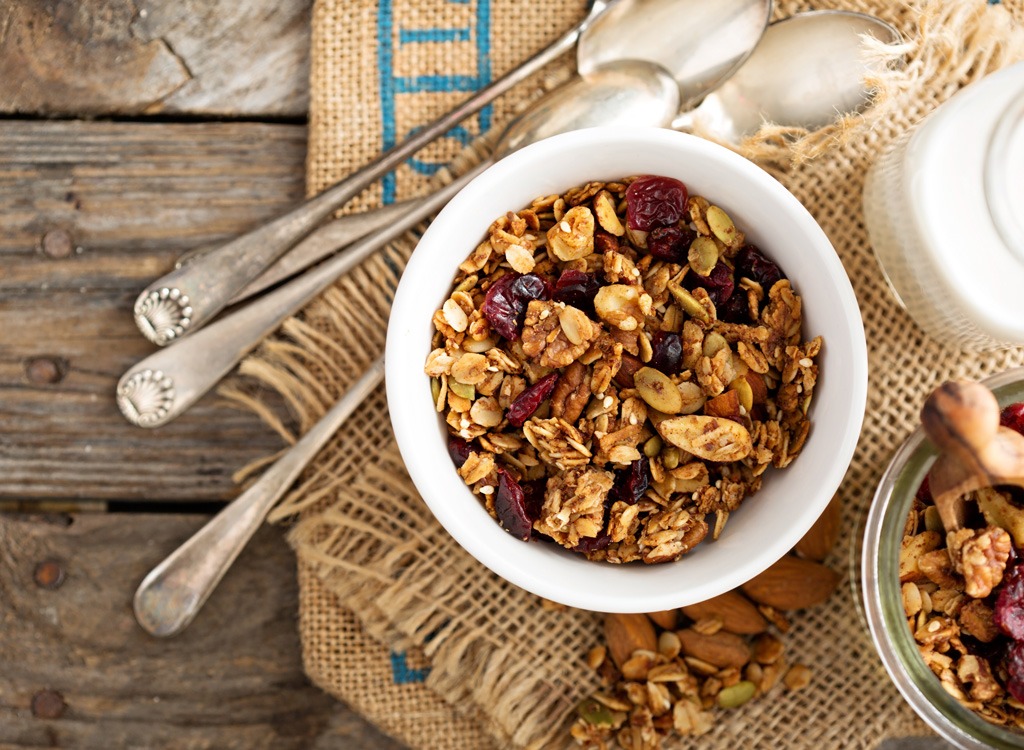
In an eye-opening poll commissioned by The New York Times, when Americans and nutritionists were asked whether a certain food was healthy, 70 percent of Americans considered granola to be healthy, but less than 30 percent of nutritionists did. The likely reason? Granola is a basically just sugar-coated cereal. And many brands rack up the same amount of the sweet stuff that cereals do and with a smaller serving size. We’d recommend sticking to a low sugar, high fiber cereal, which can provide you with over a third of a day’s worth of your recommended daily intake of fiber—just make sure it’s not one of these worst healthy cereals.
Wrap for Sandwiches
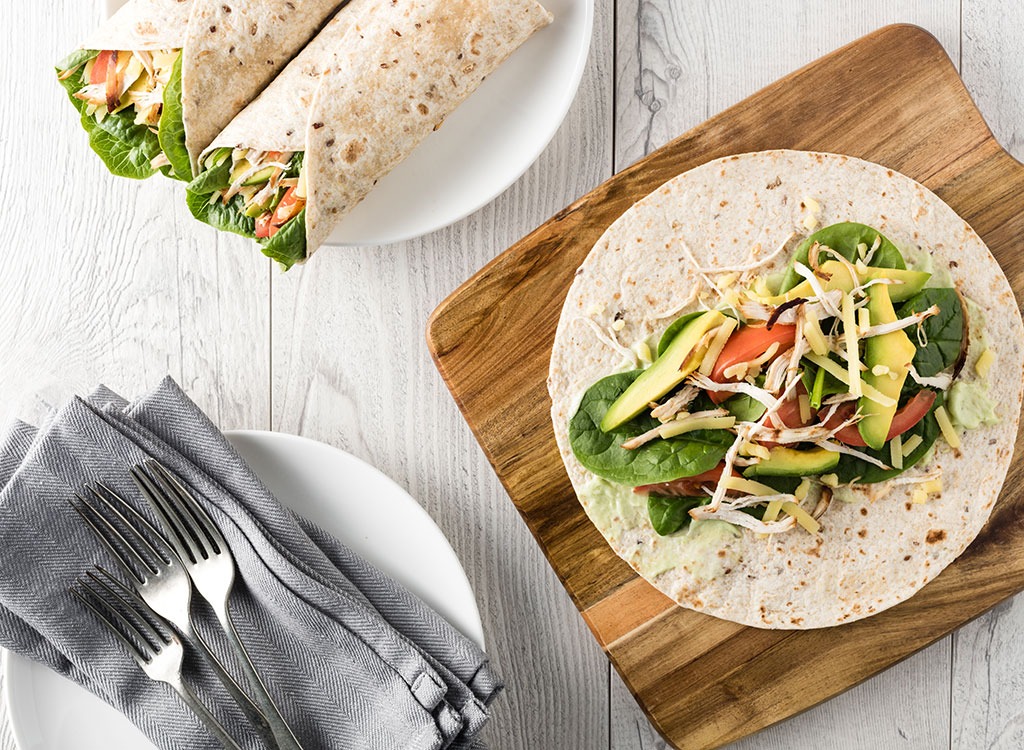
Assuming we’re talking about typical store-bought bread, the winner here is clear. While most slices top out around 100-calories, many wraps have two or three times that amount. Not to mention, in order for the tortilla to stay flexible manufacturers add fat, often in the form of soybean oil and hydrogenated oils. It gets worse, some burrito wraps, like those from Chipotle contain upwards of 700 milligrams of bloat-inducing sodium!
Reduced-Fat Peanut Butter for Regular
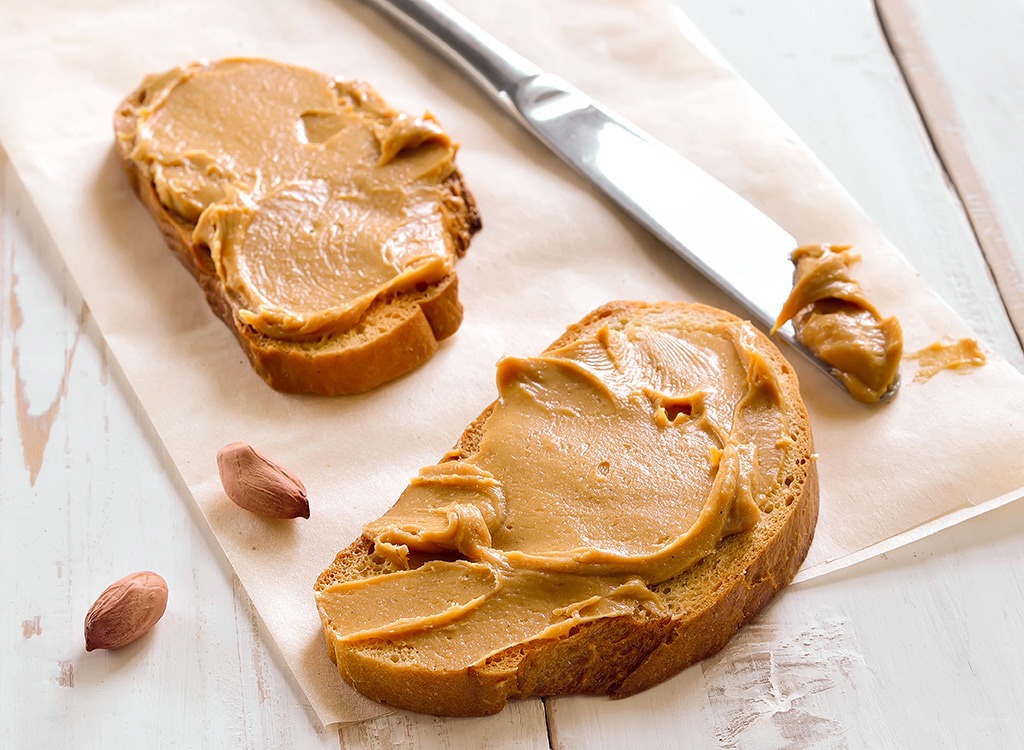
A second glance at the nutrition label of a reduced-fat peanut butter will explain everything. When manufacturers take out fat, they typically replace it with more sugar, salt, and artery-clogging hydrogenated oils. What’s worse, you’re getting rid of heart-healthy monounsaturated fats. Go for brands that have an ingredient list of just two items: nuts and a little salt.
Gluten Free Foods for Traditional Foods
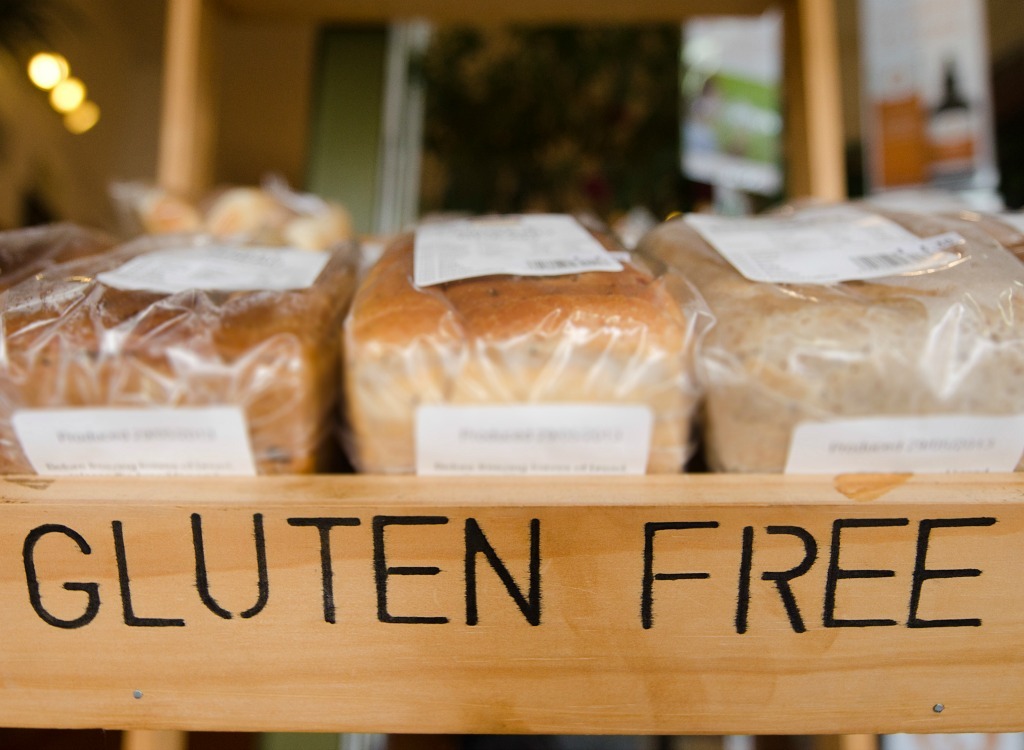
Just because people with celiac disease have to eat gluten-free to stay healthy, it doesn’t mean gluten-free foods are always the healthiest option. Elizabeth Snyder, RD, CDE, and a dietician at The Ohio State University Wexner Medical Center explains that because the gluten protein provides elasticity and volume in baked goods, often times “gluten-free foods are actually denser and, therefore, will have more carbohydrates per serving [than conventional foods].” And all carbs are ultimately broken down into sugar in our bodies. Ilyse Schapiro MS, RD agrees: “In fact, many gluten-free products are higher in sugar and fat than their traditional counterparts.” So unless you suffer from Celiac, don’t feel guilty about picking up a regular slice of bread—as long as it’s one of these 10 Best Store Bought Breads.
Non-Fat Dairy for Full-Fat
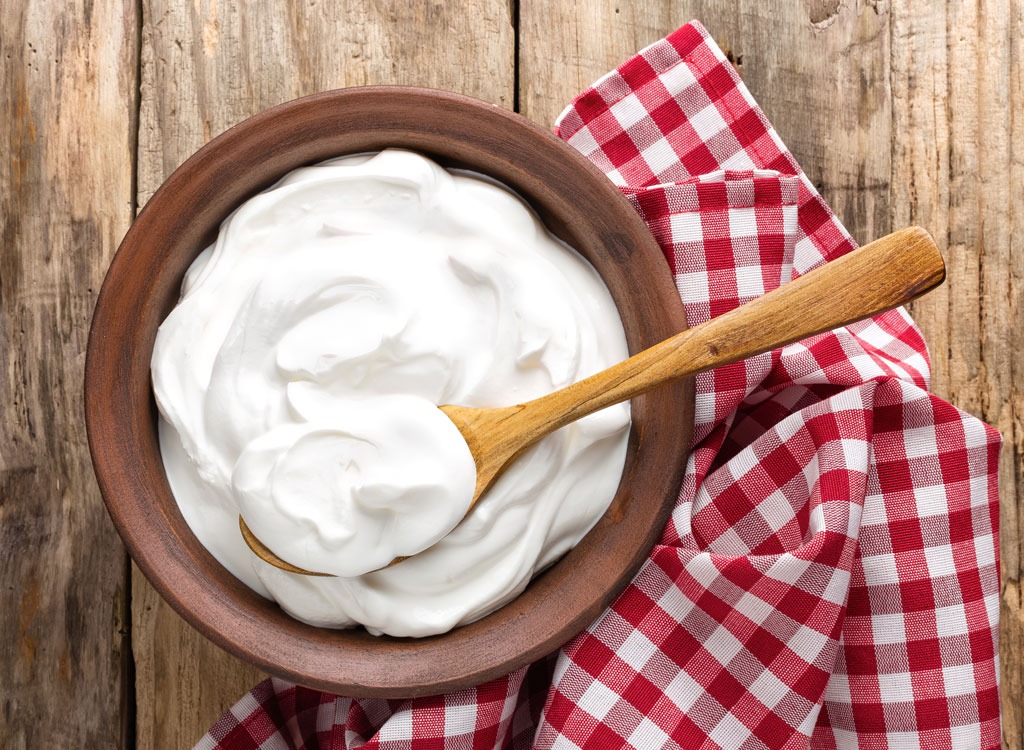
It might have more calories, but full-fat dairy will also be more filling than non-fat dairy. In fact, a review published in the European Journal of Nutrition found that people who consumed more full-fat foods were less likely to suffer from obesity and diabetes than those who try and skip the calories with low-fat dairy. Another reason to pass on the non-fat? Many vitamins are fat-soluble, which means you won’t reap their health-promoting benefits unless you opt for at least 1 percent.
Egg Whites for Whole Eggs
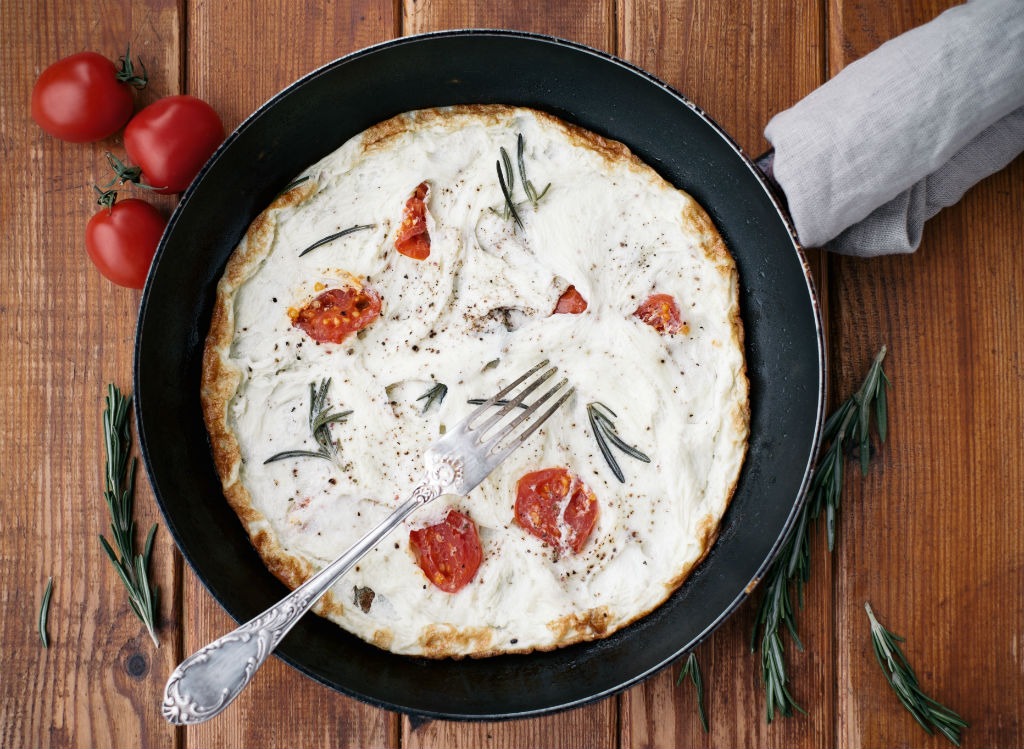
When it comes to egg yolks and cholesterol, it seems like we’ve been served up some scrambled messages. In fact, studies find that cholesterol-rich eggs should count among the 17 Foods That Lower Cholesterol thanks to their concentration of healthy fats. Even the Dietary Guidelines Advisory Committee got in on the egg yolk trend, and they dropped their longstanding recommendation to limit dietary cholesterol in the 2015 recommendations. There’s no reason to shun the yolk; In fact, the yellow contains a fat-fighting nutrient called choline, so opting for whole eggs can actually help you trim down.
Veggie Burgers for Burgers
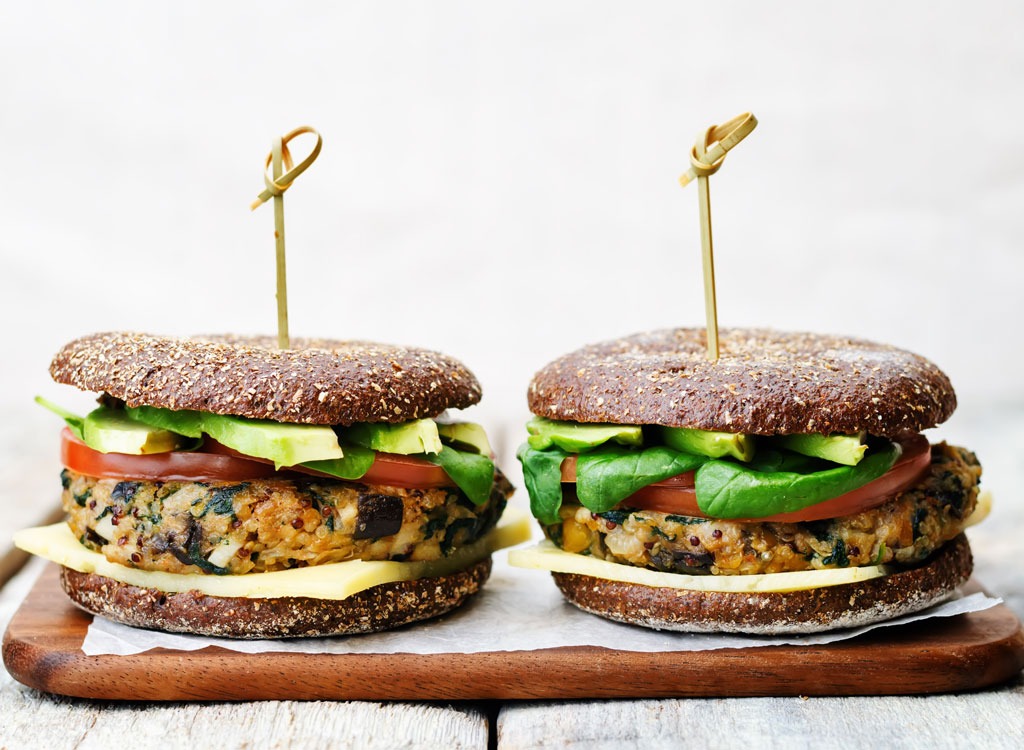
If you’re not a committed vegetarian, we’d recommend going with the animal-based burger. Many veggie-based options are low in protein and high in carbs. Sandwich that between two buns at you could be looking at a serious spike in blood sugar. To make sure you’re picking the best option, check out our guide to the highest-protein veggie burgers.
Fresh Berries for Frozen
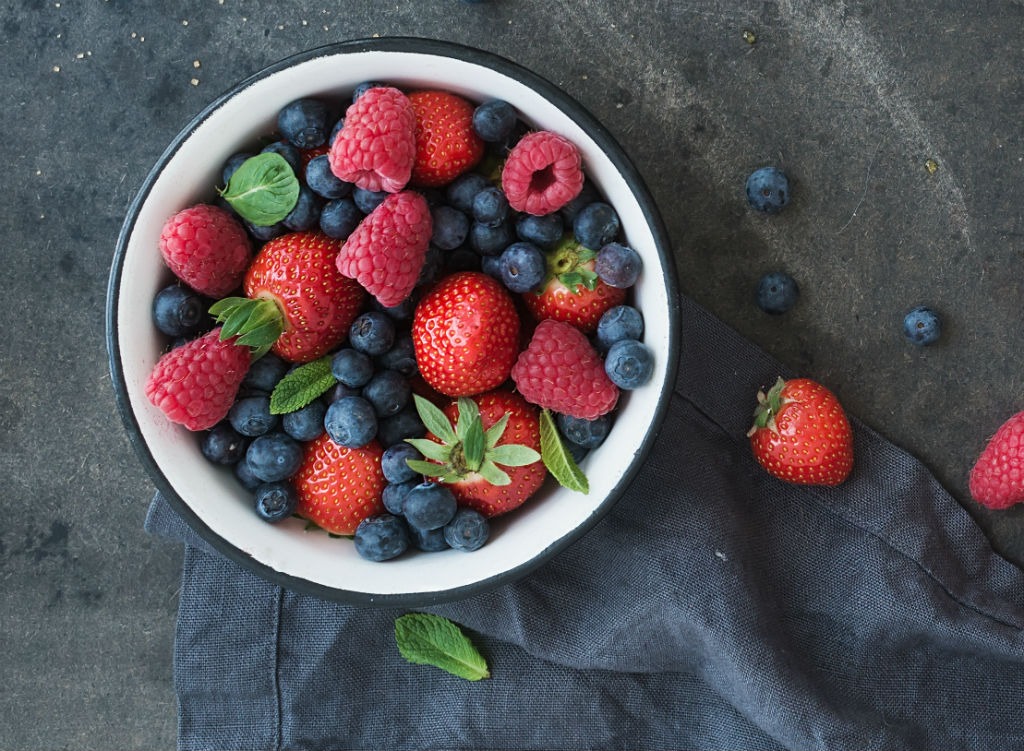
Not only do frozen berries make it easy to throw together a smoothie whenever you’re in need of a quick breakfast, frozen foods may, in fact, be healthier than fresh. That’s because while expensive fresh berries are prone to growing mold more quickly than frozen fruit, they also take weeks to make it to your grocery shelf. On the other hand, frozen fruit is picked when it’s ripe and then immediately frozen and stored. Plus, some studies have found that the freezing process actually helps to increase the amount of free-radical-fighting antioxidants in the fruit by allowing ice crystals to pierce through cell walls, releasing the bioactive compounds. For our top tips on chilling your product, check out the Ultimate Guide to Freezing Food.
Turkey Bacon or Turkey Burgers for Pork Bacon or Beef Burgers
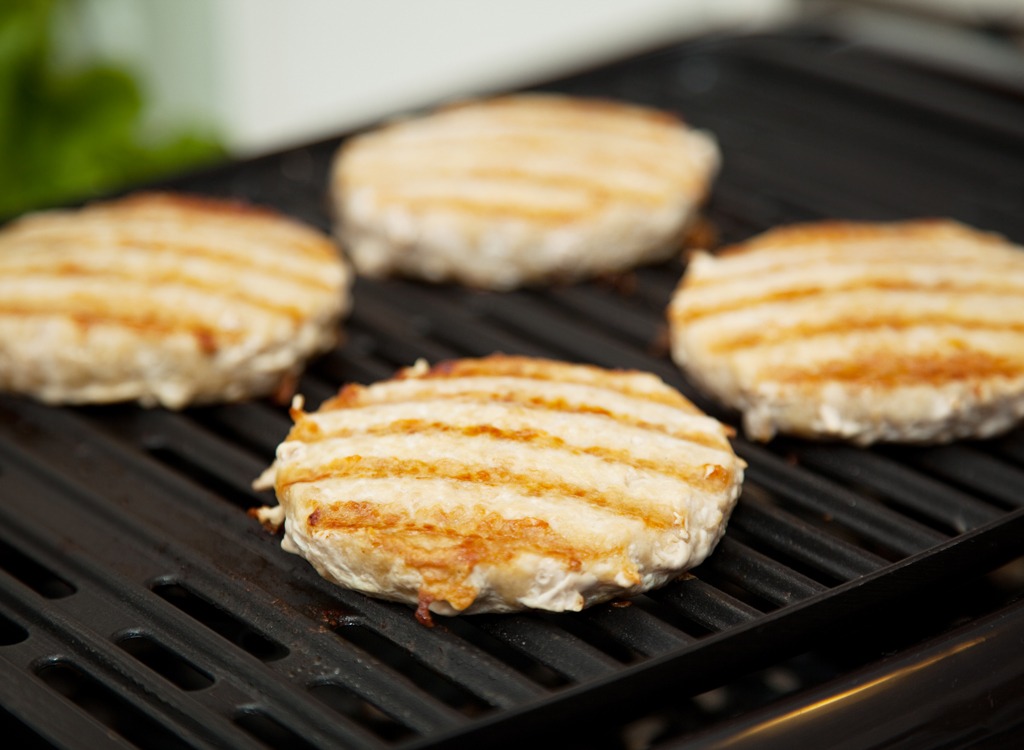
While opting for turkey bacon in lieu of pork will save you about 13 calories and a gram of fat per slice, it will also add sodium to your plate—not great news if you have high blood pressure. Additionally, pork offers more protein and heart-healthy monounsaturated fatty acids (MUFAS) than its poultry-based counterpart. As for burgers? Even though turkey is leaner than beef, most people compensate for the lack of flavor by loading up on cheeses and salt—not good news for your belly.
Bottled Tea for Water
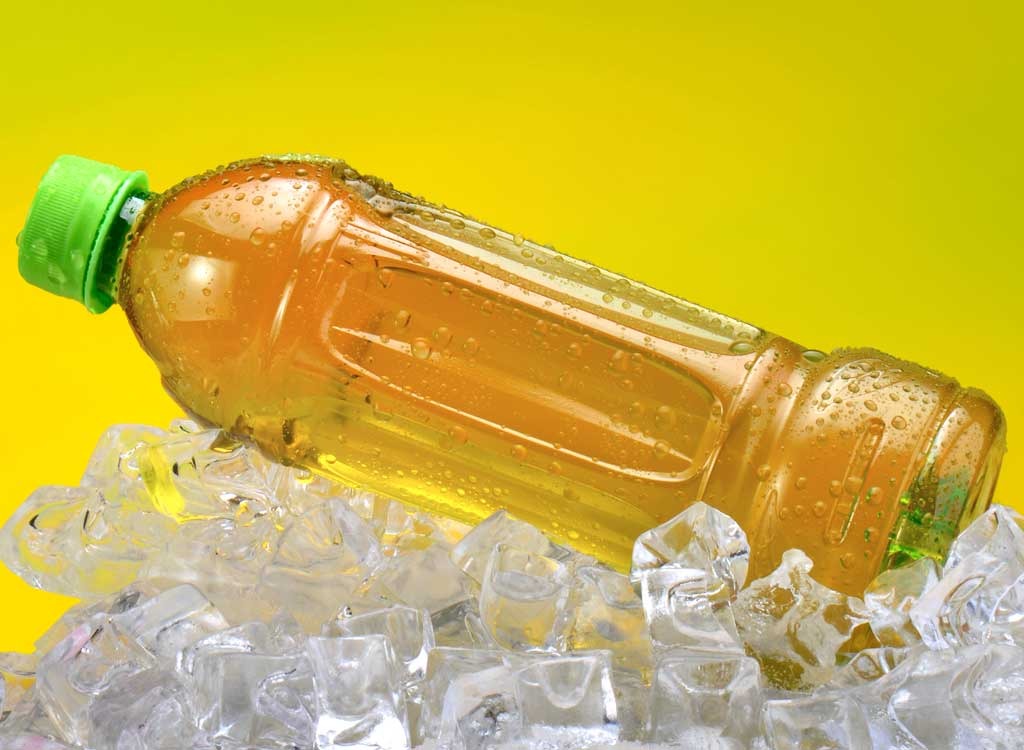
Sure you might think you’ll be able to give your health a boost by upgrading your water to antioxidant-rich tea, but that won’t be the case if you opt for the bottled variety. According to a recent study, you’d have to drink 20 bottles of store-bought tea to get the same amount of antioxidants present in just one home-brewed cup. Not to mention, most of the store-bought beverages are loaded with as much sugar as a can of soda. Don’t believe us? Check out these 26 Worst Bottled Tea Products In America.
Almond Milk for Dairy Milk

If you’re jumping on the dairy-free trend even though you aren’t lactose-intolerant, you may do your body more harm than good. Almond milk is significantly lacking when it comes to the muscle-building macronutrient, protein (it averages a mere gram per serving compared to around 8 grams for dairy milk), and it has significantly less calcium than the cow-based variety. As for additives? Any standard almond milk will be sweetened with added sugars (whereas all sugars present in dairy milk are naturally-occurring) and some contain emulsifiers, such as carrageenan, that have been banned from organic products for their connection to inflammatory bowel conditions. Don’t worry about working your way through the weeds, we’ve done the work for you in our exclusive report, The Best and Worst Milks and Milk Alternatives.
No Salad Dressing for Dressing
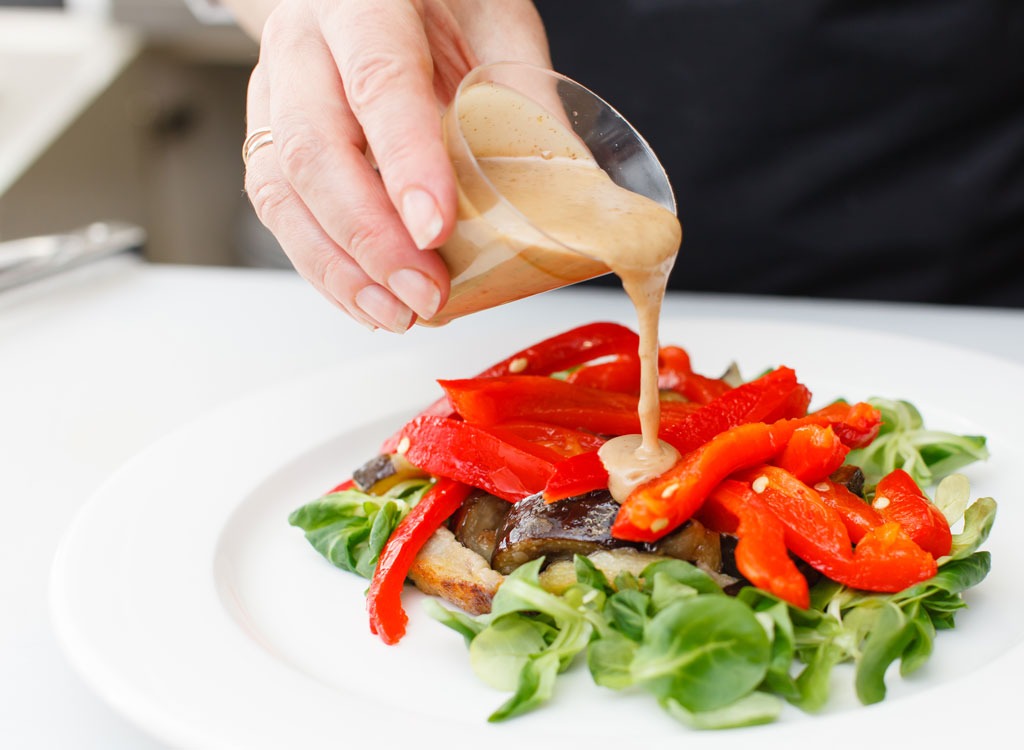
If you dress your salads with a squeeze of lemon and some pepper in an attempt to save calories, you may be missing out on some of the vital vitamins in your bowl. According to Iowa and Ohio State University researchers, pairing a little bit of fat with your veggies helps the body absorb cancer-fighting and heart-healthy nutrients like lycopene and beta-carotene. But that doesn’t give you an excuse to load up your salad with globs of dressing. Keep calories in check by sticking to two tablespoons of an olive-oil based dressing, and be sure to steer clear of varieties that use soybean or vegetable oils. They don’t serve up the same health benefits.
Sugar-Free Candy for Sugar Candy
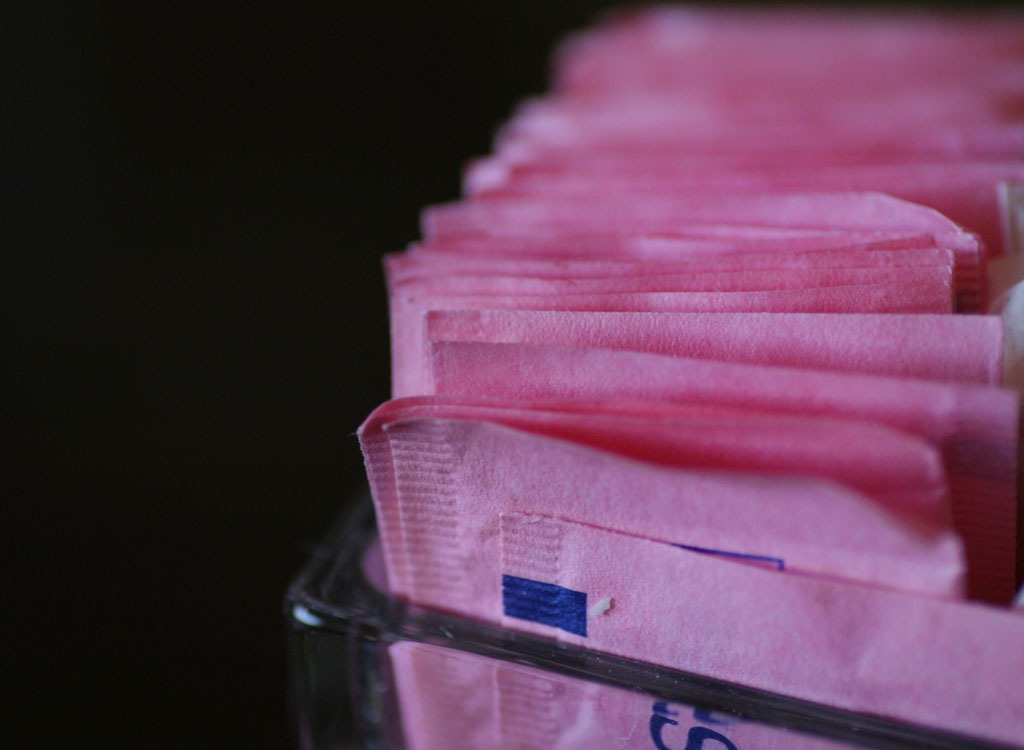
Sorry, dieters. A 2016 animal study found that when rats were fed artificial sweeteners and then switched to good-old-fashioned sugar, the rodents ended up eating 30 percent more calories than if they had never eaten the artificial stuff. Researchers speculate that loaded up on zero-calorie sweeteners can recalibrate your brain to actually crave more sweets since it no longer associates a sweet taste with calories. You’re better off indulging in a piece of your favorite candy (see these Best and Worst Dark Chocolates) and just sticking to a smaller portion.
Pressed Juice for Smoothie
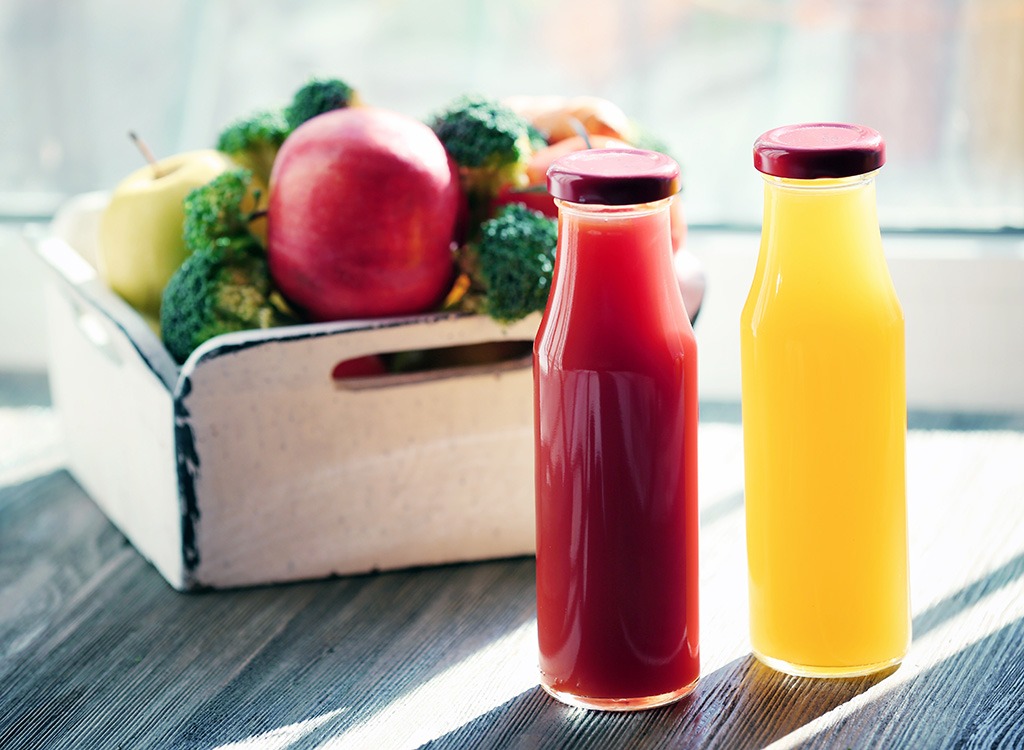
If you’re craving something sweet, your best bet is to simply eat a piece of fruit, but your next best option is a smoothie. Besides getting in your daily servings of fruits and veggies, we love adding a scoop of muscle-building protein powder and some gut-healthy fiber-rich chia seeds to our mixes. Unfortunately, you don’t have that same option with pressed juices. These beverages are devoid of any digestion-slowing fiber and are ultimately huge whacks of carbs and sugar.
Veggie Chips for Potato Chips
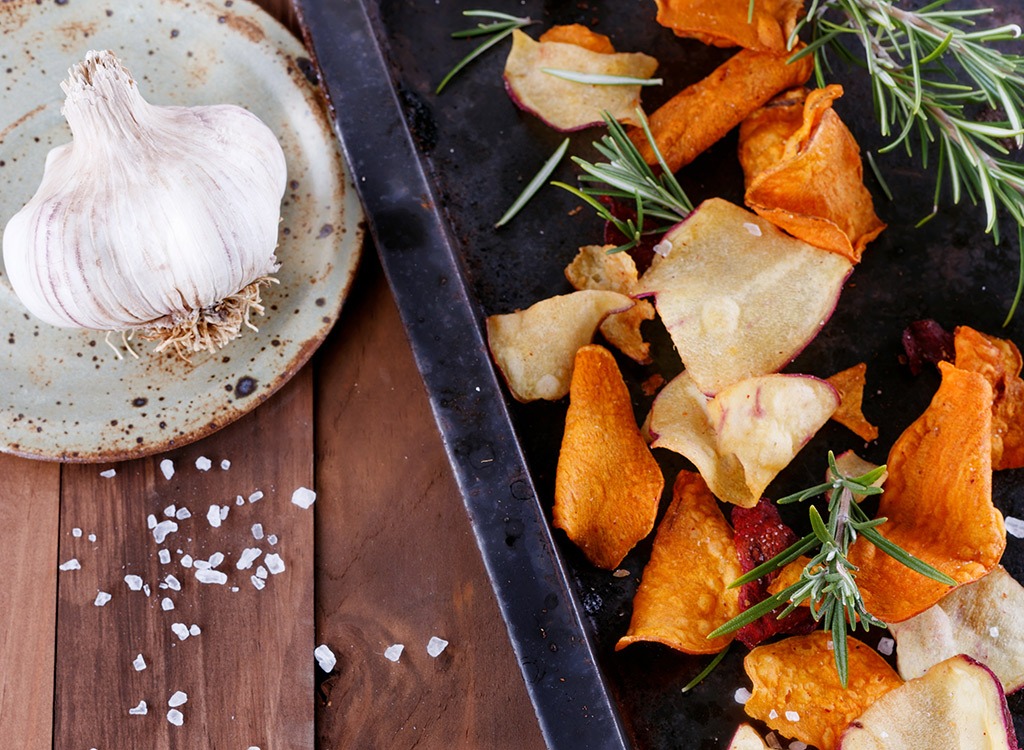
“Although veggie chips have more fiber than a standard bag of crisps, many varieties are fried,” Marisa Moore, MBA, RDN, LD tells us. She explains that if your veggies chips are full of oils just like a regular bag of potato chips, you’re better off snacking on fresh produce instead. “Those ingredients transform the vegetables from nutritional superstars to full-on indulgences,” she says, so don’t give yourself a pat on the pack for choosing the produce variety. Instead, grab an Eat This! approved pick from our list of 35 Popular Chips—Ranked!.
Agave for Sugar
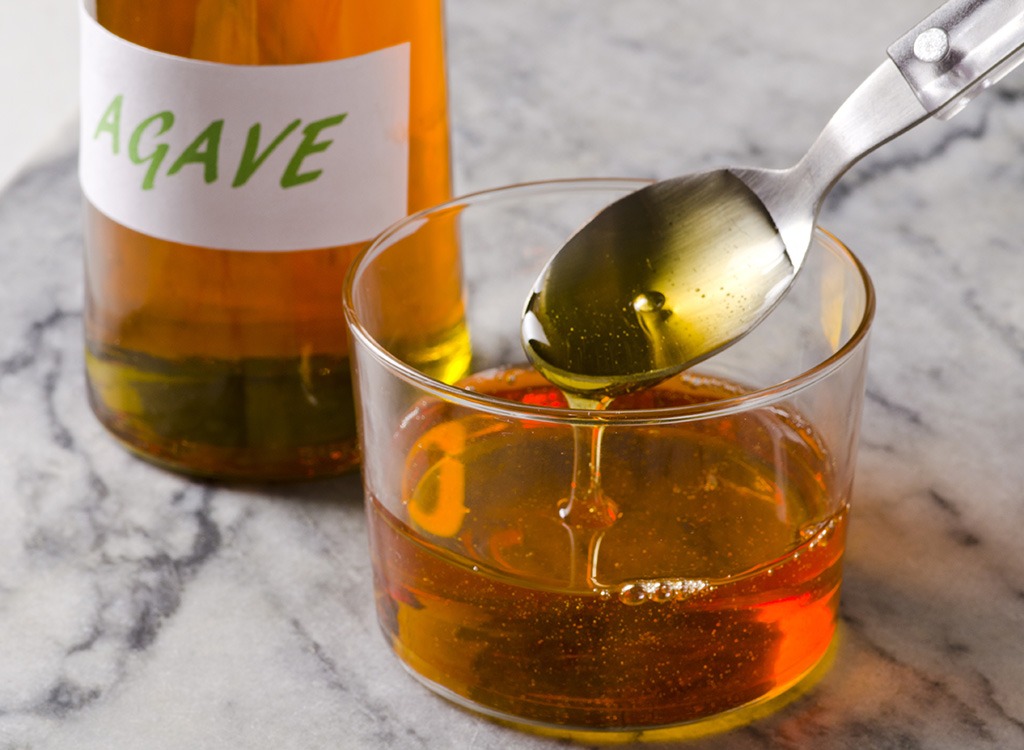
Although agave is branded to be more natural and less processed than table sugar, the reality is that agave marks off the same boxes as sugar. According to Alissa Rumsey, MS, RD, and spokesperson for the Academy of Nutrition and Dietetics, agave is a highly processed product and one that will be treated the same in your body as sugar. It may be worse, in fact, because it has a higher ratio of fructose to glucose, meaning it has a lower glycemic index (or ability to spike your blood sugar). That may sound healthy, but the reality is that studies suggest a high fructose content may be worse than a high glucose content, as fructose consumption is associated with health issues like liver and kidney disease, high blood pressure, and even signs of premature aging. Find out more about added sugars in our exclusive report, Every Popular Added Sweetener—Ranked!
Rice Cakes for Crackers
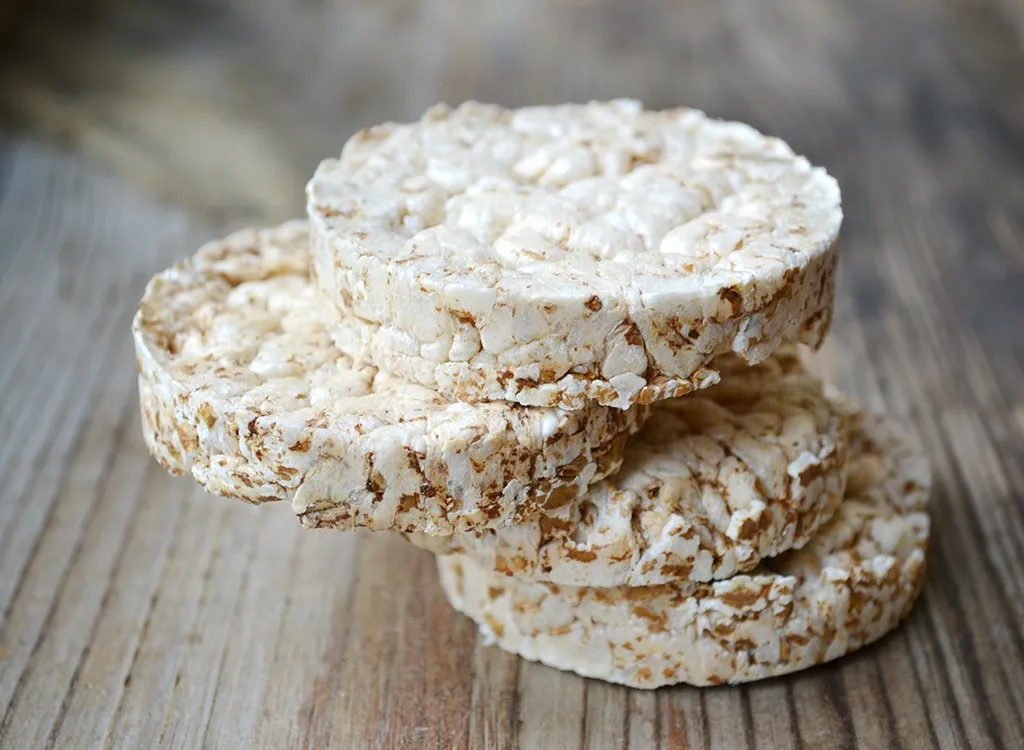
This old-school diet staple needs to be left in the dust. The simple carbohydrates in rice cakes rank notoriously high on the glycemic index (GI) — a measure of how quickly blood rises in response to food on a scale of one to 100 (rice cakes come in at 82). High GI foods provide a rush of energy but can leave you hungry within a few hours. On the other hand, if you pick a high-fiber cracker like a box by Mary’s Gone Crackers, you can have your cheese and eat it with a cracker, too!
Fried Eggplant for French Fries
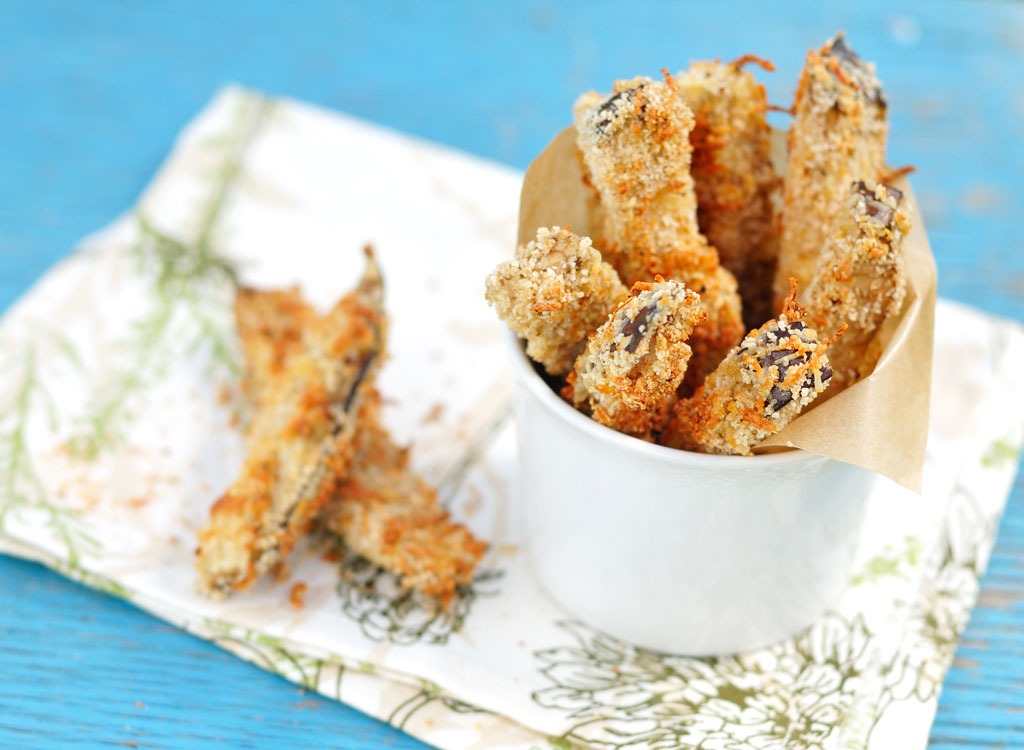
Although a vegetable like an eggplant may seem like a healthier vehicle for your ketchup than starchy potatoes, that’s not the case. Thanks to its sponge-like texture, eggplant stops up nearly two and a half times the amount of oil—around 425 calories—than potatoes do, according to a recent study. This translates to more fat on your plate and, subsequently, more flab on your frame. The choice here is clear: Stick with the spuds or else add your eggplant habit to the list of 50 Little Things Making You Fatter and Fatter.
